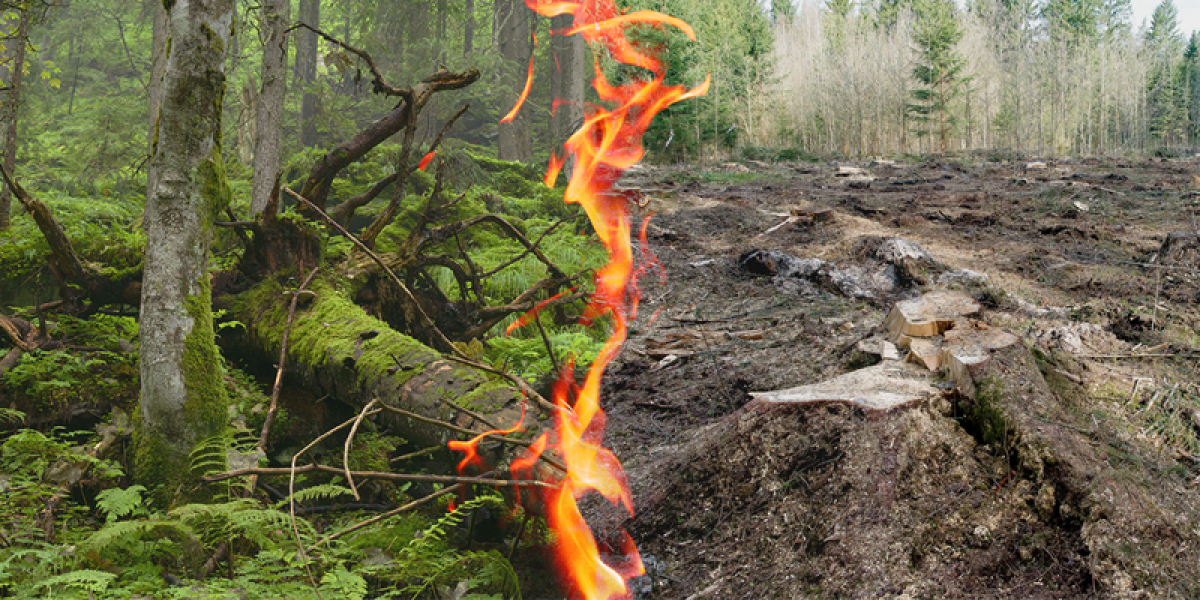Biomass fuel is not a real renewable source: NGOs attack the European Commission
12 European NGOs signed a letter to the main European ministers calling for a climate policy that protects forests from wood harvesting for energy biomass

Forest Defenders Alliance is the transatlantic initiative of NGOs interested in the protection of forest heritage that ask for a "forest-first" climate policy thas gives priority to the protection and restoration of natural forests. It published an open letter to European ministers Timmermans, Simson and Pompili, in relation to the one that had already been sent by several ministers of the Member States to strengthen the sustainability criteria of bioenergy in the Renewable Energy Directive (RED II).
The 12 signatory NGOs accuse the European Commission of ignoring scientific evidence which sohw that the burning of forest biomass for energy purposes does not coincide with the targets for reducing polluting emissions set by the European Union.
According to the organizations, European action should move along two lines: on the one hand, reducing emissions is undoubtedly the main aim, but on the other hand it is also very important to increase the "carbon wells", natural or artificial carbon deposits which absorb carbon dioxide. This will help to reduce the amount of CO2 in the atmosphere and limite global warming caused by the greenhouse effect.
Forests and plants in general, along with the oceans, represent the main carbon wells of natural origin, which is why they are essential to preserve, rather than use them as fuel to create energy.
But, on the other side, the European Union depends heavily on the burning of forest biomass: about half of the resources that are collected are used for energy purposes, and could soon also increase. A condition resulting from the incentives provided for by RED II for companies using forest biomass as an energy source, and from the fact that the European ETS provides a great competitive advantage to these companies, who do not need to buy carbon credits for their greenhouse gas emissions.
Almost 80% of European forest habitats are threatened by these activities: currently, forest biomass for energy combustion comes from the so-called "sustainable forest model" (SFM), which consists of the net cutting of natural forests, in order to replace them with harmful plantations of trees, which cause a decline in species because their habitats are ruined.
As written in a study by the Swedish National Economic Institute (KI), to achieve climate goals, allowing forests to absorb carbon brings more benefits than collecting and using woody material for the so-called green transition. In fact, we must not forget that the combustion of wood is the main source of dangerous thin particles, which surpasses even road transport: an alarming fact, if you consider that in 2018, fine dust pollution has been responsible for some 379,000 premature deaths within Europe.
The NGOs that have written and signed this letter are aware that it is extremely vital to achieve the climate and energy objectives set by the European Union, but it is a path that must be done using only sources that are truly renewable, such as wind, solar, and geothermal energy.
According to the results of a petition, it seems that European citizens also prefer to support truly renewable energy sources and to protect forests more, rather than burning them to obtain energy, as already mentioned, which is not completely green.
Currently, a petition is also open on the Forest Defenders website, which interested parties can sign, calling on EU policy makers and EU Member States to:
- end subsidies and other incentives for the combustion of forest wood, and redirect them towards energy efficiency and true low-emission renewable energy sources;
- exclude the energy generated by the burning of forest wood from the count for renewable energy targets;
- prioritising the protection and restoration of forests, ensuring that all European policies safeguard citizens' health, climate and biodiversity.
How is the situation in some states of NGOs who signed the letter
In Bulgaria, over 60% of deforestation is made to obtain biomass for combustion: one million cubic meters for pellets and 4-5 million cubic meters of wood are used as firewood, while for the construction of furniture and tables is used only one million, and this causes numerous conflicts between the parties who make different uses of it. Nevertheless, Bulgaria has been sued for the second time by the European Commission for failing to comply with the air quality limit values for PM10 and is facing financial sanctions, and here the timber used for domestic heating is the main source of PM2,5 and PM10 in some regions.
Estonia uses about 6 million cubic metres of wood for its energy needs and exports about 3 million cubic metres of wood in pellets to other EU Member States that use it for the same purpose: this represents an unprecedented felling intensity, which is seriously endangering species and natural habitats and protected areas, for which the European Commission has initiated infringement proceedings against the country.
In Sweden, the Swedish forestry industry emits more carbon dioxide than all other industries, and the current sustainability criteria of the RED II Directive are not strict enough to prevent the deforestation of the last remaining natural forests in Sweden.


